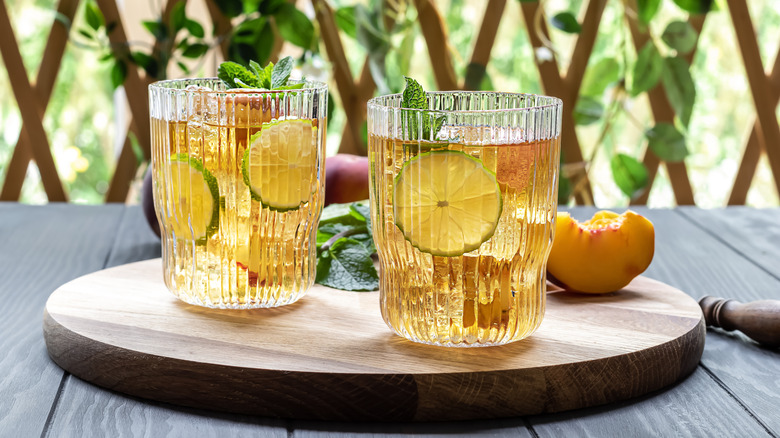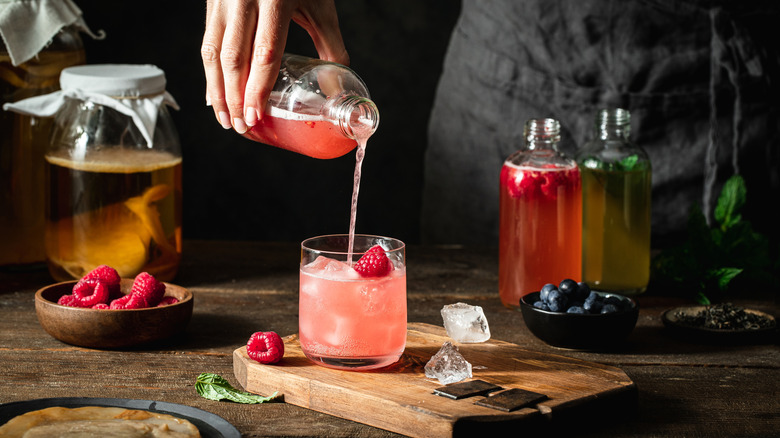The Probiotic Beverage You Should Be Adding To All Your Mocktails
We may receive a commission on purchases made from links.
At one time, non-alcoholic mixed drinks were limited to such offerings as the Roy Rogers and Shirley Temple, sugary concoctions with names meant to appeal to '30s kids (the 1930s, that is, not the children of Generation Beta). Today, however, there are mocktails so good you hardly notice the lack of alcohol. Some people drink them because they've never cared for booze, but others are all about the health benefits. (No one's drinking them for economic reasons since mocktails are usually just as pricey as cocktails.)
To give zero-proof drinks interesting flavor, pleasant consistency, and some nutritious benefits, mixologist Derek Brown suggests using probiotic mixers. "From probiotic juices and sodas to yogurt drinks, there are a surprising amount of probiotic beverages you can mix with," says the author of "Mindful Mixology: A Comprehensive Guide to No- and Low-Alcohol Cocktails" and co-founder of the District of Columbia-based Mindful Drinking Fest. Of all these options, though, he feels, "Kombucha is one of the better probiotic choices." In addition to offering flavor and texture benefits, kombucha also contains antioxidants, polyphenols, and B vitamins.
As Brown tells The Takeout, "It's important to realize kombucha is a tea-based beverage. Juice and sweeteners are often added to it, but the base is a fermented tea. The result is a slightly fizzy, tangy drink." Due to the fermentation, some kombuchas contain trace amounts of alcohol (a Washington state elementary school once banned kombucha on account of this), but Brown pointed out that this needn't affect a drink's mocktail status: "In the U.S., beverages below 0.5% alcohol by volume may be labeled non-alcoholic ... Such trace amounts are typically metabolized before producing intoxication, comparable to the ABV found in items like hamburger buns or apple juice."
Ideas for kombucha mocktails
So how do you get started with making kombucha mocktails? As Derek Brown recommends, "It's generally fizzy. You can use it like soda. Top off your favorite non-alcoholic spirit or sour for a highball or fizz." He also says it can take the place of tea or juice, although depending on the kombucha you use, the drink may require an additional sweetener like simple syrup.
Commercial kombuchas will come in a variety of flavors, and you can make homemade brews with whatever you like. As Brown notes, "There's everything from raspberry basil kombuchas to kombuchas with cucumber and melon and just about anything fruit, herbal, or floral in between." (He favors both ginger and apple.) Whatever flavor you pick, you'll need to choose mixers that can complement it.
One of Brown's favorite kombucha cocktails is a non-alcoholic bee's knees made with zero-proof gin, lemon juice, and honey and topped off with lavender blueberry kombucha to give it some fizz and depth. Another is his own recipe, a drink called a wobble well that combines apple kombucha with aquafaba, oat milk, lemon juice, and grenadine. When using kombucha as a base, as in the case of the latter drink, he explains, "I try to include other ingredients that add texture and richness."

